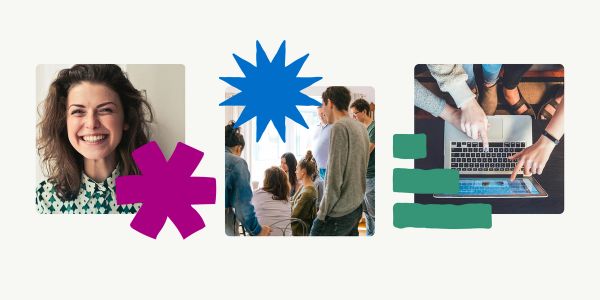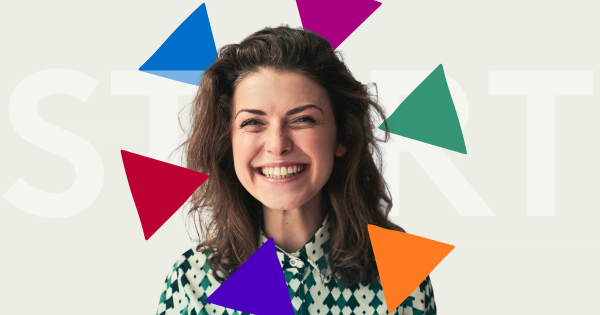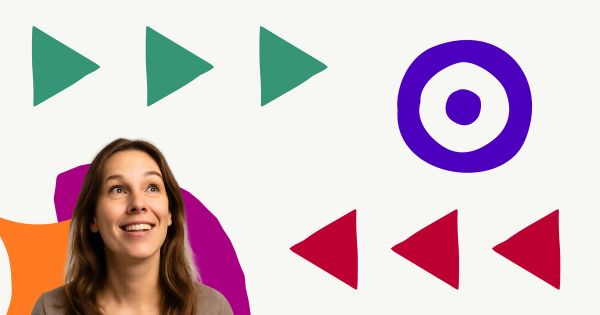Character: the foundation of our potential

We are all born with the innate capacity to be great. We each have something unique to bring to the world that makes it more complete.
You look to ordinary people who have achieved extraordinary things in their lives and admire them for being great, a master of their field. Whether it is a CEO, a sports star of the likes of Lewis Hamilton or the person who sets up a charity during a global pandemic delivering food parcels, they possess something. If we could only deconstruct these individuals and see what they are made of, we could then offer some of the best learning and development in the world.
Reverse Engineering Brilliance
Yet, if we pause a moment, it maybe isn't such a mystery. We are all born with innate qualities that, when leveraged, can lead to brilliance. It is how successful people realise this innate potential. There are three simple ingredients to their success.
- They have a dream. They imagine a future and take action to make it happen.
- They possess skills – things they can do now, after training.
- They have unearthed their character qualities. Their innate qualities are realised.
The ability to achieve our potential – to become the best version of ourselves – is a combination of dreams, skills, and character.
It is easy for us all to dream of a possible future. It takes something else to believe, drive forward, persevere through challenges, and overcome.
The journey to attaining new skills is straightforward… There are many courses available. It takes something else to show up to the training, to engage in the ideas, to try them out and apply these skills consistently.
Character, well, character feels a little abstract. It is the "something else". The intangible concept that takes a dream and the skills and manifests them in life. It is the foundation of our success.
Is character learnable?
Character-based development is a challenge to the intellect.
First, isn't character something that you are born with? Unlike skills, which are things to be learnt, your character is a set of innate capabilities. We are all born creative, innovative, curious or resilient whether we are conscious of it or not – whether we develop these character qualities or not.
However, if character is a set of innate capabilities, how can they be unlocked and developed in everybody?
Let's take lifelong learning as a skill we will need in the future. It is a skill that is much easier to attain if we are curious, open-minded and perceptive.
We can all attain the skill to drive a car. To take a vehicle to its maximum speed requires courage, calmness, and commitment. When you are eight years old, driving go-karts funded by your dad, there is a clear visionary involved somewhere to believe this child could become a six-time world champion.
When Shakespeare was growing up with his glovemaker father, what did he have that made him become the pre-eminent writer of all time? Sure, he could put pen to paper. But he had to leave his family behind on the whim of a dream to write plays that would be shown in the theatres of London. He was creative, which was part of the foundation of his character that led to the realisation of his dream and his skills. He was also purposeful, and even in the darkest times of the plague, optimistic that his plays would be a success.
When people define their journey to their future potential in terms of skills, they miss what is foundational to success. First, they must consider who they truly are and need to become to travel this path they imagine in their dreams. By becoming aware of what character qualities are and identifying those in our experience, we can then emulate them consciously in daily behaviours.
Offering the best learning and development
All this theory is great, and the relevance of developing character is sound. But how can those in learning and development – or the motivated individual – hope to learn these qualities that could make us great?
First, we imagine who we want to be. Dr Daniel Gilbert, a Harvard psychologist, found that people are not good at predicting their future, not because they can't but because they don't. According to Gilbert's research, many of us don't spend much time imagining our future selves, as they assume that who they are today is who they will always be.
Second, journal about who we want to be three years from now and how we want to feel. Decide who we want to be – and then enrol people into your dream. Start telling people about your future self.
Then, create a daily routine and activate your future-self mindset. Invest in this future self with courses, skill development, mentors, and as many experiences as you can. Change our environment to match this future self, from the food you eat, the people you mix with, your sources of information, and more.
Simple but hard
Ask people whether they see these three simple concepts as fundamental to success. It is likely that most would agree and would wonder at the simplicity of the concept. Many of these would then do nothing to evolve their own character.
Why?
It is hard. It takes belief that we can attain dreams and master skills. It then takes consistent, daily, habitual acts to manifest the character needed to reach our potential.
What if learning and development focused on what was challenging? What if learning professionals committed to supporting people in the evolution of character from which the individual would be freed to attain the rest?
Can you imagine what this learning culture would look like in your organisation?
You may also like

Beyond Skills: Why Human Qualities Matter More Than Ever

Discover Your Strengths - Why One Small Step Can Lead to Big Personal Change
